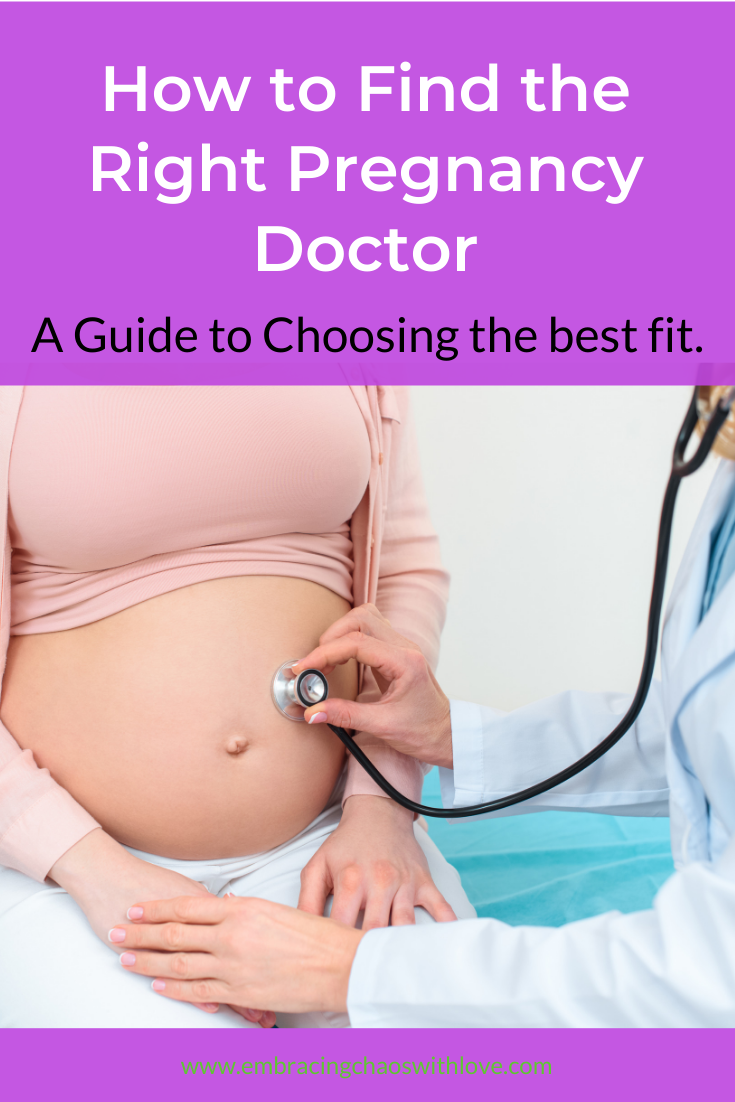Choosing a doctor you can trust and feel comfortable with during pregnancy is very important. It is one of the first things you should do once you find out you are pregnant. Early symptoms like morning sickness will start soon, and you will want a doctor to talk to about your symptoms, so get one soon.
This doctor is going to be giving you a lot of advice. They will be letting you know how you should change your diet once you get pregnant and the foods you should include in your pregnancy diet. Trusting in them will go a long way to a more uncomplicated pregnancy.
The stress of wondering whether your doctor has you and your baby’s best interest in mind is not needed. Below I discuss how you can choose a pregnancy doctor that is right for you.
How do you choose the right gynecologist?
I was fortunate to have a good team for both of my pregnancies. I was with Kaiser for both of them, although we moved after my daughter was born in different locations.

For my 1st pregnancy, I loved my Ob/Gyn. She listened to me and truly cared about my pregnancy and the baby. I was sad to leave her practice when I moved.
For my 2nd pregnancy, I found another Ob/Gyn team I liked too. I mostly had all my appointments with the Nurse Practitioner, whom I loved. I saw the OB for only a few visits; she was also terrific.
In both pregnancies, the team that delivered was all different people. The offices I went to for my appointments did not have a labor/delivery section. So be aware that this is a possibility when it comes down to the actual delivery. Here, check out what you will need to pack in your labor and delivery bag.
ObGyn vs. Midwife vs. Family Practitioner
So how do you choose a pregnancy doctor that is right for you? First, you need to know what you want from the doctor. You want to have someone you can easily talk to and trust. Also, their childbearing philosophies should be similar to your own.
Family Practitioner
A family physician you trust and a style of practice you like could be an option. You can talk to them about seeing you for all your prenatal appointments.
Although, if complications arise, they may have to send you to a specialist. The good thing about family practitioners is that they can become your pediatrician.
I always hate trying to find a new doctor, so if I can use the one I have and trust, I’m all for it. In all instances for me, I ended up having to find all different and new doctors.
No matter the case, though, if for some reason you do not like a doctor you choose, or they no longer fit your needs, do not hesitate to change at any time.
Midwife vs. Obgyn: What’s the difference?
One of the main differences between an ob-gyn vs. a midwife is the credentials they hold. They both can provide excellent pregnancy care and safely deliver babies, but they have different educational backgrounds.
Ob/Gyn
An OB-GYN is a medical doctor specializing in women’s reproductive health, including pregnancy care and delivery of babies.
To become a medical doctor, they had to complete four years of medical school, a four-year residency, and a three-year fellowship. After that, they can continue to become board certified if they wish.
Obstetricians are good because they are trained for every aspect of pregnancy, labor, delivery, and even postpartum. If you like to have all the information and usually have many questions for the doctor, you want an Ob-gyn.

OBGYNs are also the ones you go to for all of your female health needs that are nonpregnancy related, so you may already have one. You are all set if you have one you like and respect. Make sure you also agree with their philosophies regarding pregnancy and childbirth.
If you have a high-risk pregnancy or any complications arise during your pregnancy, an Ob-Gyn will be assisting you. However, if you have had one since the beginning, there is no need to worry; you are already in capable hands.
This is why I prefer to have an OB/GYN each time. You will also be seeing this doctor for your 6-week postpartum appointment.
For both my pregnancies, since the doctor I went to for all my appointments did not deliver the babies, it was nice to bring them to my postpartum appointment so my doctor could meet them. They were with me through the whole pregnancy journey, and they loved meeting the baby in person they cared for internally.
Midwife
Midwives are trained health care professionals. They work closely with your health care team, like your primary care doctor or gynecologist, to meet all your pregnancy needs.
There are three different levels of midwife credentials. A CPM is a certified professional midwife certified by the North American Registry of Midwives.
A CM is a certified midwife and has earned a post-graduate degree in midwifery. They are certified by the American Midwifery Certification Board.
CNMs are certified nurse-midwives who are registered nurses who also have their master’s in nursing and are certified by the American Midwifery Certification Board.
Midwives are great if you want a little more of a personable doctor. You get a doctor that takes an interest in your physical well-being as well as your emotional well-being. They are usually trained to do home births and deliver in a hospital. So, if you are considering a home birth, a midwife is one of your options.
I requested a midwife to deliver the baby if possible for my birth plan for both of my pregnancies. You get a little more one-on-one time with a midwife in the hospital.
Midwives are usually not in charge of as many patients as the on-call OB/GYN, so they can spend a little more time with you. They can also help coach you through the labor process. Any breastfeeding help you may need initially can help you, too, until the lactation specialist is available.
First Time Pregnancy Questions
Here are some great questions to ask during your first prenatal appointment. Make sure you write down any questions that may come up; pregnancy brain can be rough, especially in the first trimester.

- What OTC medications are safe for me to use for headaches, allergies, colds, etc.?
- Should I expect to cramp?
- Should I expect bleeding?
- How much weight is normal to gain?
- What exercise is safe during pregnancy?
- Is it safe to get a flu shot during pregnancy?
- How long can I work, and when should I tell my employer?
- Should I write a birth plan?
- What should I expect during labor and delivery?
- Who will deliver my baby?
- What are the reasons I would need a cesarean section?
- Are my prescription meds okay to take during pregnancy?
- Should I change my skincare products?
- What foods can’t I eat?
- What are some typical symptoms I should expect?
- Can I travel during pregnancy?
- What prenatal testing or screening should I do?
- Do I need to take a prenatal class?
- Is sex okay during pregnancy?
- Is it safe to go to a spa/get my hair done?
- Do I need to sleep in a particular position?
- Does my family history put me at risk for any conditions?
- How often will I have an ultrasound?
- When will I feel the baby move?
- Any warning signs I need to look out for?
- Am I able to have a doula?
- Can I email or call with any questions or concerns?
- Who do I contact if I can’t reach you?
Conclusion
Choosing the right pregnancy doctor for you can be overwhelming, but it doesn’t have to be. Know what you want before you start looking.
You should feel comfortable enough with any doctor you choose that you can ask them anything. They are there for you when you have questions. You will undergo many changes during your pregnancy, and you should feel like you can reach out with any concerns at any time.
The most important thing is the health of you and your baby. Don’t be afraid to switch doctors if something isn’t working out. Best wishes for a happy and healthy pregnancy!




